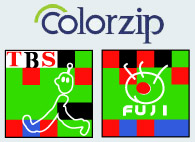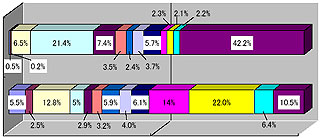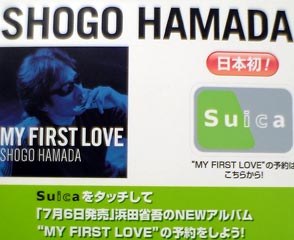 Now that TV viewing has jumped off the couch and onto the streets over wireless handsets, Japanese TV broadcasters are scrambling to adapt content and programming to mobile viewing. Colorzip Japan is introducing a Technicolor technology that could bring TV mobile marketing into focus for broadcasters.
Now that TV viewing has jumped off the couch and onto the streets over wireless handsets, Japanese TV broadcasters are scrambling to adapt content and programming to mobile viewing. Colorzip Japan is introducing a Technicolor technology that could bring TV mobile marketing into focus for broadcasters.
Colorzip Japan recently announced it is working with strategic partners Fuji Television Network, and Tokyo Broadcasting System (TBS) on a late-summer launch of TV applications for its two-dimensional server based code recognition system, ColorCode, linking TV broadcasts to related digital content for sponsored websites, music samples, contests and prize drawings.
The technology could eventually provide easy access to TV programming in progress or rebroadcasts via subscriptions. For now though, the developers are looking at links to mobile program websites as well as contests and promotions. Colorzip Japan CEO Christopher Craney told WWJ, “TV companies are working on this initially as a way to promote their programming.” (Evan Owens, Director and CTO, made a presentation about this technology at Mobile Monday Tokyo’s April Event — Ed.).


 Mobile commerce over cell phones jumped 25 percent last fiscal year to around 971 billion yen ($8.8 billion) according to a survey on e-business just released by Japan’s Ministry of Economy, Trade and Industry [
Mobile commerce over cell phones jumped 25 percent last fiscal year to around 971 billion yen ($8.8 billion) according to a survey on e-business just released by Japan’s Ministry of Economy, Trade and Industry [ Now that TV viewing has jumped off the couch and onto the streets over wireless handsets, Japanese TV broadcasters are scrambling to adapt content and programming to mobile viewing. Colorzip Japan is introducing a Technicolor technology that could bring TV mobile marketing into focus for broadcasters.
Now that TV viewing has jumped off the couch and onto the streets over wireless handsets, Japanese TV broadcasters are scrambling to adapt content and programming to mobile viewing. Colorzip Japan is introducing a Technicolor technology that could bring TV mobile marketing into focus for broadcasters. Japanese IC cards have pop posters grooving to a techno beat this summer. Fans of hunky J-Pop star
Japanese IC cards have pop posters grooving to a techno beat this summer. Fans of hunky J-Pop star